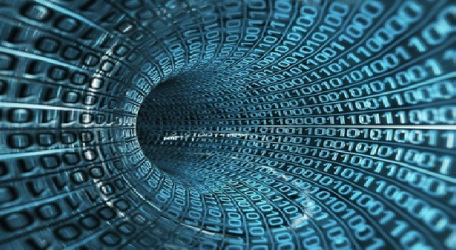communications. Each letter becomes a series of digits. Every image first becomes a series of pixels, each of which is then translated into a series of digits. In the end the whole audio-visual world can be reduced to an infinite series of ones and zeros, and we are swept down a rabbit hole where everything becomes “content,” separated from its forms and often from its context as well. This is the world in which mash-ups are considered high art, and it is also the world in which data, information, and knowledge are jumbled together, morphing into undifferentiated instantiations of the same "content."
Digitalization is the great leveler of meaning and value in our time. It can make entities seem both discrete and connected at the same time. If I search on Google for “paradise,” the first thing that appears will be an advertisement for the Paradise Rock Club on Commonwealth Avenue in Boston (since I live in the environs) followed by bakeries, a small town in Michigan, pictures of tropical islands, and innumerable stores and restaurants that have adopted the popular name. Occasional Wikipedia entries are scattered about alluding to
another world.
It is only in the middle of the fifth page (does anyone ever go that deeply into a search?) that I finally come across what I was really after: information about Dante’s epic poem Paradise. What’s more, except occasionally for the first entry, all the results appear in the same format accompanied by descriptions of roughly equal length. Rock clubs, tropical islands, and world-class masterpieces—all appear of equal weight when sorted by search engines such as Google or Bing. (Admittedly Dante’s work appears closer to the top if one searches on “paradiso.” In the world of “Content” (and let’s not forget “Big Data”), life does indeed seem to be getting, as Alice might observe, "curiouser and curiouser," by the day.

 RSS Feed
RSS Feed